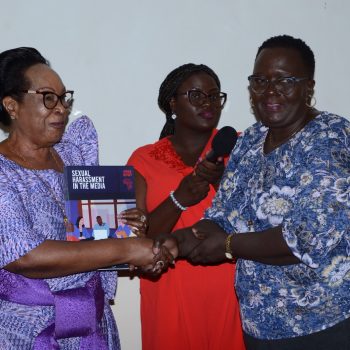Kampala I Uganda has been ranked 133rd in the new report on World Press Freedom (WPF). The report compiled by Reporters Without Borders (RSF) finds that propaganda and disinformation is flourishing in Sub-Saharan Africa with governments beleaguered by conflicts and security threats – treating media as propaganda tools.
Here is the full reported accredited toRSF
Disinformation keeps on spreading in sub-Saharan Africa. In countries plagued by conflicts and security threats, governments treat the media as propaganda tools. The military governments of Mali (113th) and Burkina Faso (58th), who aren’t shy about displaying their association with the mercenaries of the privately owned Russian military company Wagner Group, have indefinitely suspended the local branches of two international media outlets and have expelled several foreign journalists.
In the Central African Republic (98th), the content of the Russian propaganda media outlets RT and Sputnik is widely disseminated. The defence and promotion of the pro-Russian narrative has contributed to an explosion of disinformation and the development of a propaganda ecosystem across the continent.
Fake media networks now even help to denigrate and discredit journalists who do not comply with patriotic injunctions imposed by the new military juntas in power.
A similar phenomenon is noticeable in Ethiopia (130th). The Tigray War has led to a wave of arrests of journalists and encouraged intense propaganda by federal authorities, such as the Tigray People’s Liberation Front (TPLF).
In the Democratic Republic of Congo (124th), in the North Kivu region, journalists are caught between the injunctions of the M23 rebels and those of the loyalist forces.
Still a high-risk continent for journalists
Propaganda and disinformation thrive in what is still one of the most dangerous terrains for journalists. While French reporter Olivier Dubois was finally released after 711 days as a hostage in Mali.
A total of five journalists were killed in connection with their work from September 2022 to January 2023 in Cameroon (138th), Kenya (116th), Somalia (141st) and Rwanda (131st).
Even if investigations are opened, they do not always lead to identification of the instigators, as seen in the cases of Cameroonian journalist Martinez Zogo and Rwandan journalist John Williams Ntwali.
In this environment where impunity reigns, arbitrary arrests on spurious grounds are on the rise, targeting investigative reporters in particular. Once a regional model, Senegal (104th) has fallen 31 places in the index, above all because of the judicial proceedings against two journalists, Pape Alé Niang and Pape Ndiaye, and a sharp deterioration in security conditions for reporters.
In Burundi (114th), radio journalist Floriane Irangabiye’s extremely harsh 10-year prison sentence helped to keep this country towards the bottom of the index.
Although the situation is now classified as “difficult” in nearly 40% of countries (versus 33% in 2022), some improvements were seen in countries such as Niger (61st), where a cyber-crime law used to imprison journalists was amended in June 2022, and in Uganda (133rd), where the Constitutional Court struck down a provision of the Computer Misuse Act that criminalised the publication of “fake news”.


